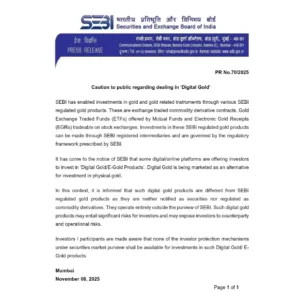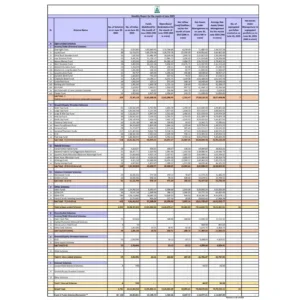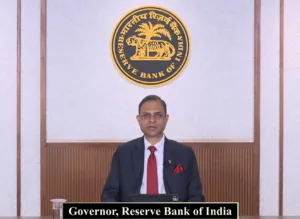What Happened
India’s market regulator SEBI, the Securities and Exchange Board of India, has made some important rule changes to help foreign investors put more money into Indian government bonds. This move is aimed at making India more attractive to global funds that track international bond indexes, like the one by JPMorgan Chase.
What’s the Big Deal About These Changes
Many global investors had earlier said that India’s investment process is too slow and involves too much paperwork. SEBI has now taken steps to fix that by making it easier for foreign investors, especially those who want to invest in government bonds through the Fully Accessible Route or FAR.
What Are the Key Changes SEBI Announced
1. Less Paperwork for Some Funds
Foreign funds that invest only in Indian government bonds under the FAR route do not have to give detailed information about every investor group. This is expected to save time and effort for both the investors and regulators.
2. Simpler KYC (Know Your Customer) Process
The KYC process will now be less frequent and more relaxed for these investors. SEBI will follow rules similar to those set by the Reserve Bank of India. This makes it easier for funds to stay compliant without repeating paperwork often.
3. No Limit for NRIs and OCIs
Non-resident Indians (NRIs), Overseas Citizens of India (OCIs), and resident Indian individuals can now invest in these global funds that focus on Indian government bonds. There will be no cap or limit on how much they can invest.
Why This Matters Now
Recently, Indian government bonds were added to JPMorgan Chase’s emerging market bond index. This move has already led to more interest from foreign funds. By removing obstacles and speeding up the investment process, SEBI is trying to attract even more money into India’s debt market.
Other Big Decisions SEBI Took
SEBI’s board meeting in Mumbai also approved other major steps to boost financial market reforms:
1. Easier Delisting for Some Government-Owned Companies
Certain state-run companies will now find it easier to delist from the stock market if they meet specific conditions. This could help in faster privatization or restructuring.
2. New Rules for Merchant Bankers
SEBI has revised the minimum net worth rules for merchant bankers:
Category I merchant bankers must have at least 500 million rupees in net worth
Category II merchant bankers must have at least 100 million rupees in net worth
3. More Freedom for Merchant Bankers
Merchant bankers will now be allowed to offer more services, such as fee-based advisory work, that are not regulated by SEBI.
4. Co-Investment Allowed for Some AIFs
Certain Alternative Investment Funds, or AIFs, can now offer co-investment options. This means they can allow investors to directly invest in the same opportunities as the fund, which can increase transparency and confidence.
Final Thoughts
SEBI’s changes are a strong signal that India wants to make its financial markets more accessible to foreign investors. With the inclusion of Indian bonds in global indexes and now these relaxed rules, India could see more long-term capital coming into its bond market. This is good news for the economy, the bond market, and for investors looking for stable returns.

BBW News Desk is the editorial team of BigBreakingWire, a digital newsroom focused on global finance, markets, geopolitics, trade policy, and macroeconomic developments.
Our editors monitor government decisions, central bank actions, international trade movements, corporate activity, and economic indicators to deliver fast, fact-based reporting for investors, professionals, and informed readers.
The BBW News Desk operates under the editorial standards of BigBreakingWire, prioritizing accuracy, verified information, and timely updates on major global developments.
































Be First to Comment